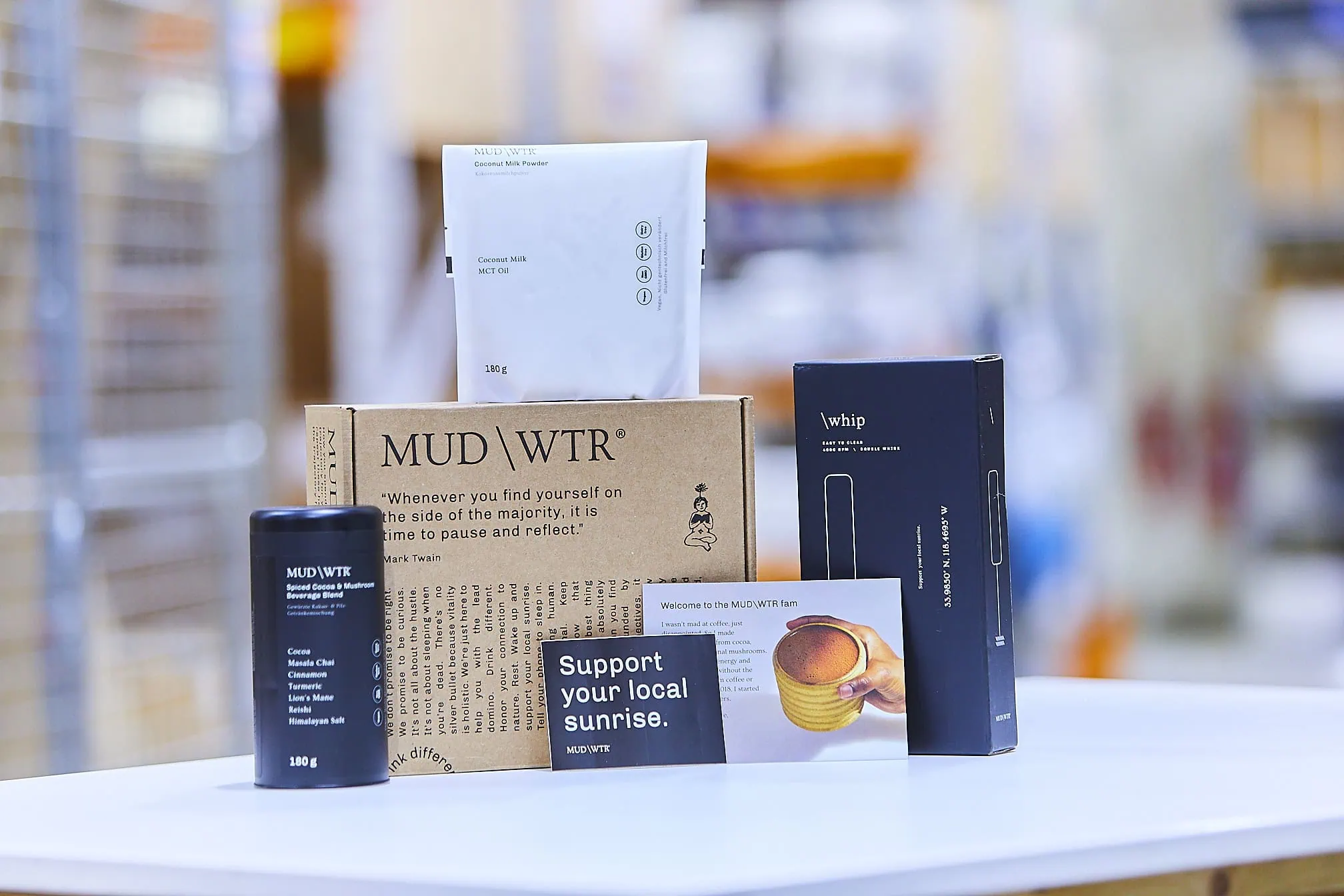
Did you know that the United Kingdom imports more goods from the United States of America than any other country in the world? According to UK Government statistics, nearly £120 billion of goods were imported from the US to the UK in the 2023 calendar year. What’s more, this annual figure has increased by around 50% in the space of just five years, underlining the importance of imported American goods to British consumers.
Of course, exporting to the UK isn’t always the simplest task, especially for businesses exporting in large quantities on a regular basis. Despite steady progress over the last few years, the UK and the USA don’t currently have a bilateral trade agreement in place, meaning that certain levels of taxes and charges are applicable to any imports made. Having said this, the administration and payments involved shouldn’t act as a deterrent, as long as you know your legal requirements and the scale of charges you’re likely to incur.
This guide covers everything US-based e-commerce businesses need to know about shipping goods to the UK. We’ll explore the key facts around UK import duties and customs charges, paying import duty to HMRC (His Majesty’s Revenue and Customs), and the role of VAT in the UK. We’ll also highlight the difference working with a UK fulfilment partner can make in reducing the burden of taxes and duties, and making the process of getting orders to end customers more efficient.
What are the Benefits of Shipping to the UK?
Large potential market
With a population of almost 70 million people, and the sixth biggest economy in the world by GDP, the UK represents a huge consumer market waiting to be tapped into. Buying goods online has become ingrained in British retail culture in recent years, which means e-commerce businesses have a huge opportunity to grab competitive market share.
Potential cost savings
Shipping into the UK in bulk gives you the chance to get products into the British market at a much more cost-effective rate that protects your bottom line. Given that both UK import duties and VAT are applied to shipping and insurance costs, as well as the value of the goods, the savings that can be made are substantial.
No language barrier
As the US and the UK both speak English, there are no linguistic difficulties in understanding rules and regulations or missing any cultural nuances. This may sound simple, but it can make a real difference in avoiding any accidental non-compliance, and enabling faster resolution when things don’t go to plan.
Which UK Customs Charges are Applicable?
The rules around US to UK import duty are based around the UK’s Global Tariff, which was introduced at the end of 2020 following Britain’s departure from the EU. It defines different rates of duty that are required to be paid on different goods, and on exports from different countries. The system works using the Harmonised System (HS) codes that are established and controlled by the World Customs Organisation: obtaining the correct codes for the items you intend to export will be essential.
How much is UK import duty from the USA to the UK?
The main rate of import duty is variable, depending on the nature and value of the items being imported and can run up to 12%. However, there are two fixed rates that are applicable: 0% on any goods worth less than £135, and 2.5% on gifts worth between £135 and £630.
However, import duty is not only charged on the value of the goods that you’re importing, but also on your transportation-related costs, such as shipping and insurance. It’s important, therefore, to bear these costs in mind when exporting goods from the US – and to calculate all your likely shipping and duty charges beforehand.
Is VAT applied to goods imported from the US to the UK?
Yes. Any items you export to the UK that would usually be subject to Value Added Tax (VAT) will also have VAT applied to them at the corresponding rate, which is generally 20%. But it’s also important to note that the VAT is charged not only on the cost of the goods, but also on the shipping costs and import duty payment connected to the goods.
Imagine you are exporting goods that cost $2,000 and are subject to VAT. You also incur $300 in shipping and insurance, bringing the total cost to $2,300. The import duty for this item is 10%, which adds $230, making the new total $2,530. VAT is then applied at a standard rate of 20% on this total, resulting in an additional $506. This brings the final amount payable to $3,036.
How and when should import duty and VAT be paid?
As your goods are shipped over from the United States, you will receive notification from your delivery supplier (Royal Mail or other courier business) that import duty is payable. The information provided through your customs declaration and commodity codes (see below for further details) will be used to calculate the exact amount payable for import duty and VAT.
This payment must be made in full before customs will release the goods to be delivered to your intended recipient. Generally speaking, you will need to make the payment within three weeks, after which the goods are likely to be returned to the sender if payment hasn’t been received.
If you intend to make exports to the UK regularly, you can set up a duty deferment account with HMRC. This allows you to make monthly payments and avoid the hassle of making individual payments for every consignment.
Are there any tax reliefs applicable?
There are a number of circumstances in which you may be able to reduce the amount of income duty you’re required to pay – or even avoid it altogether.
For example, if you’re re-importing goods that you have previously exported, or are only exporting goods temporarily (such as samples, or items for exhibitions and demonstrations), then different rules apply. Tax relief can also be claimed on educational and cultural goods, medical and scientific items, printed and promotional goods, or items needed for industrial or commercial research.
All the different conditions around import duty relief are available on the gov.uk website, but keeping track of all these possibilities and regulations can be complicated and extremely time-consuming. This is why it’s always recommended to work with a third-party import and logistics expert if possible.
What are the Challenges of Shipping to and from the UK?
Shipping goods from the US to the UK does come with some challenges. But these challenges can be overcome by working with a specialist UK-based fulfilment partner.
Shipping costs for small volumes
Challenge: The UK is thousands of miles from the US, and that means the cost of transporting goods eastwards across the Atlantic Ocean can be considerable. This is especially the case when transporting small amounts of goods in each shipment.
Solution: Working with a UK fulfilment provider allows you to ship larger volumes each time, to be received and stored in UK fulfilment facilities.
Customs and delivery delays
Challenge: Delays at customs are a frequent cause of end-customer frustration and business disruption.
Solution: An experienced fulfilment partner can help mitigate customs delays and ensure swift delivery of stock into their warehouse facilities, ready for onward delivery to end-customers.
Peaks in demand
Challenge: Demand for shipping capacity between the US and the UK fluctuates at different times of year; for example, the run-up to BFCM and Christmas will normally be particularly busy.
Solution: A fulfilment provider will receive and store goods for you in advance, allowing you to balance product supply and demand and enable smooth trading around your peak periods.
Administration for UK customs charges
Challenge: It can be complicated and very time-consuming to deal with administrative requirements, UK customs charges, UK VAT and various other considerations.
Solution: Working with a UK-based fulfilment partner with years of experience in export, import, customs and duty regulations can support your team, every step of the way.
What do I Need to be Able to Import from the USA to the UK?
From an admin perspective, your business will need the following in order to successfully import goods from the USA into the UK:
Customs declaration
You’ll need to complete a document that confirms all the details of the goods you’re importing, so that they can be checked by the authorities when they pass through customs.
HS commodity code
Use the UK Trade Tariff website to find out the commodity code for the specific items you want to import, so that the correct duties and safety regulations are applied.
Specific requirements
Depending on what you’re importing, you may also need a specific import licence: this applies to goods including (and not necessarily limited to) live animals and plants, hazardous materials, and anything being used for military purposes.
Can Fulfilment from the UK Make Things Easier?
In a word – yes. Working with a fulfilment provider can be instrumental in easing the process of shipping goods from the US to the UK, and ensuring the potential for profitability and new growth can be maximised:
Cut fulfilment process delays and costs
A fulfilment provider will be able to support the shipping and customs processes, making them faster and cheaper. They will be able to partner with the right carriers and process the right customs and duty information, so that nothing is held up. Working with a partner that offers a multi-carrier delivery solution is key to significant delivery cost savings, account admin and customer service. They will also be able to accommodate your goods at fulfilment centres in the UK, meaning goods can be shipped ahead of time, and then dispatched to customers as soon as e-commerce orders come in, speeding up the whole process.
Get support when issues arise
Complications can naturally arise when dealing with any sort of international trade. Knowing solutions to different problems and being able to apply them quickly can minimise unexpected costs and disruptions, which is where fulfilment support and excellent customer service can be so invaluable.
Leverage industry-specific expertise
A good fulfilment partner will also be able to provide knowledge and expertise specific to your business, such as the likely commodity codes and import taxes applicable to certain types of goods. This can give you more confidence in your cost projections and allow you to judge profitable opportunities with confidence.
FAQs
Is there a US to UK import tax calculator available?
Yes, the online UK Trade Tariff service can give you quick and clear information about the levels of income duty and/or VAT that you’re required to pay for any imports from the United States (or any other country, for that matter). To get started, you’ll need your commodity code – which you can get within the Trade Tariff site itself – and your intended date of import.
How likely is it that the rules will change in the future?
This depends on the political landscape. While the UK and the USA have traditionally always enjoyed good international relations, both countries underwent a change of leadership in 2024. The new administrations on either side of the Atlantic Ocean may want to take a more proactive approach to agreeing a trade deal, one that could lead to import duties being reduced or even eliminated. Combine this with the fast-moving situation around global trade tariffs, if you intend to export from the USA regularly, you should stay abreast of political developments in the months and years ahead.
Which carriers are available to help me ship from the US to the UK?
Most of the established global shipping companies will be able to provide services to help you ship goods from the UK to the UK. Businesses like USPS, UPS, FedEx and DHL are well-versed in the logistics, customs and tax implications of international shipping, and will have good infrastructure and support systems in place to help you. However, if you’re shipping products in increasingly larger quantities, working with an industry-specific provider can help you get more personalised and tailored service. See the Jones Road case study for an example of how this works in practice for the beauty sector.
What Should I do if I Need Help with Importing from the USA to the UK?
The best way forward is to partner with an experienced logistics and fulfilment expert, who understands all the ins and outs of importing goods and can support you every step of the way. Find out more here about how ILG specifically helps US beauty businesses with their UK and EU fulfilment.
Contact Us
More insights >
A Guide to UK Market Entry for Canadian Brands
Canada’s traditional export routes have been radically changed recently and the UK market could be a good alternative to the US. Read our guide to UK market entry.
ILG Partners with Fin – Sustainable Logistics
ILG is thrilled to announce its new partnership with Fin Sustainable Logistics, a pioneer in zero-emissions delivery services.

